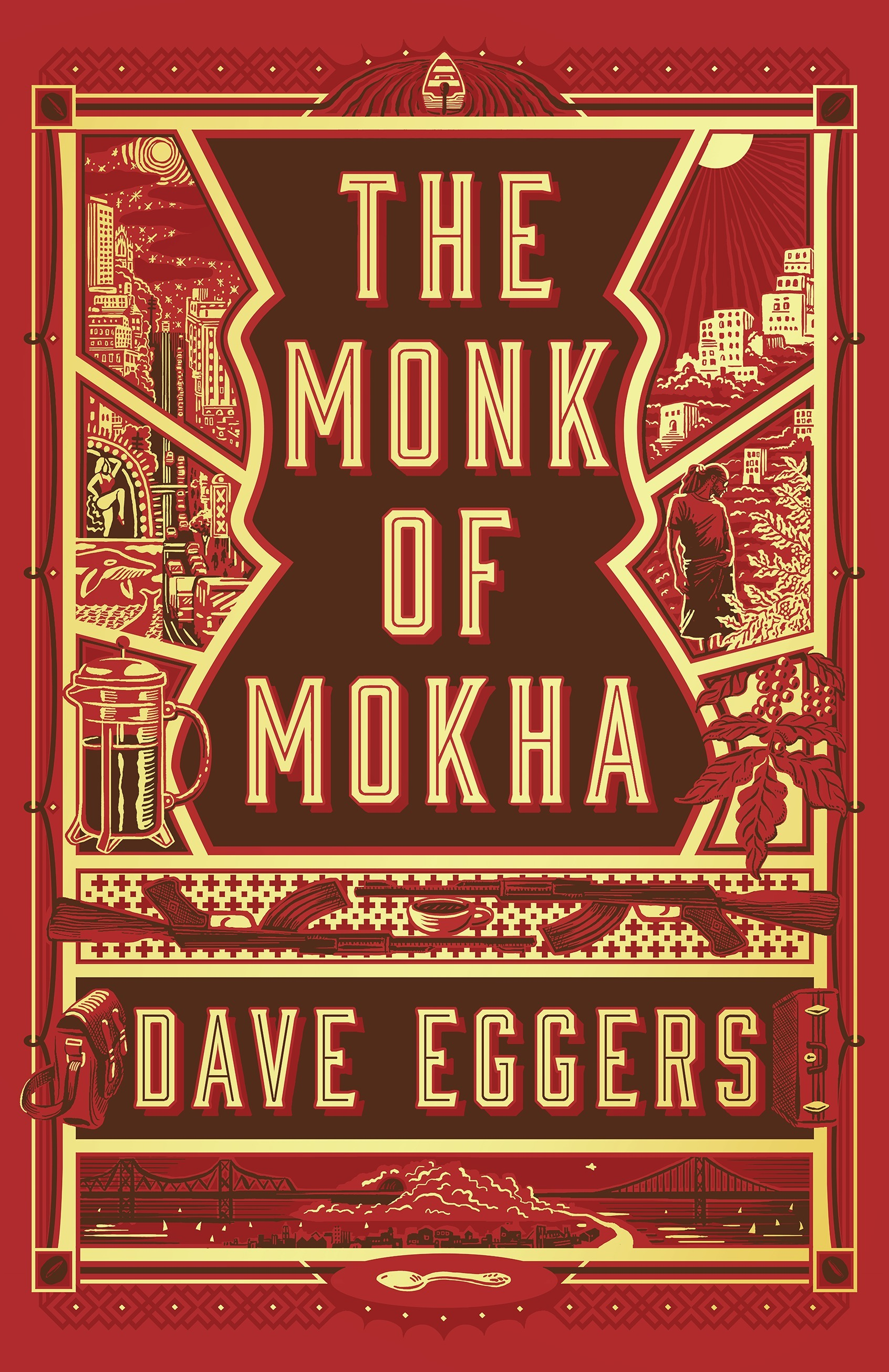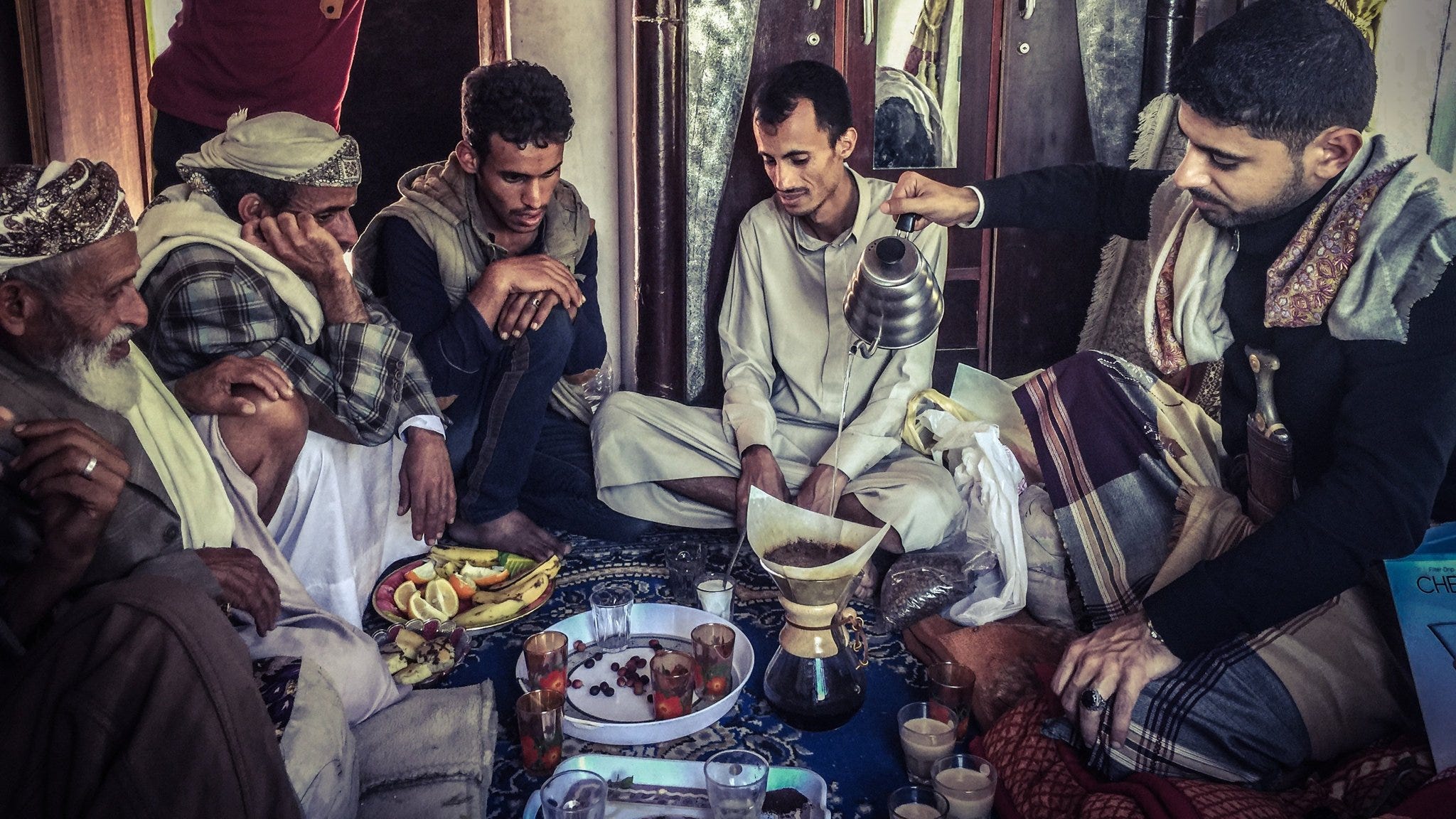 “The Monk of Mokha” is a riveting factual story that flawlessly integrates history, adventure, and entrepreneurship.
“The Monk of Mokha” is a riveting factual story that flawlessly integrates history, adventure, and entrepreneurship.
Dave Eggers, celebrated for his knack for conveying true stories, brings to life the story of Mokhtar Alkhanshali, a Yemeni-American from San Francisco. Mokhtar’s transformation from doorman to coffee entrepreneur is nothing short of inspirational. The story is set against the backdrop of Yemen’s long history of coffee farming and its place in the worldwide coffee trade.
This story is about more than just coffee; it’s about finding one’s roots and the unwavering pursuit of a dream. Mokhtar’s desire to resurrect Yemen’s rich coffee tradition leads him on a risky voyage to war-torn Yemen, where he tackles obstacles ranging from the complexities of the coffee importing/exporting business to the perils of civil war.
Eggers’ writing is engrossing, transporting readers to Yemen, where they can experience the rich tapestry of Yemeni culture, history, and the aroma of its coffee with Mokhtar. The book digs deeply into the technicalities of the coffee trade, from bean selection to brewing, making it a treat for bean-heads, which is why I picked up this book in the first place.
“The Monk of Mokha” is a story of human endurance, grit, and the power of dreams. Mokhtar’s narrative inspires readers by showing them how far they can go to pursue their dreams, even when faced with seemingly insurmountable obstacles.
Eggers also discusses Yemen’s broader sociopolitical landscape, giving readers a comprehensive picture of the nation’s challenges. Since 2014, the narrative has revolved around the Houthi-Saudi Arabian conflict and the accompanying civil war in Yemen. The subject matter is a cultural and historical exploration of modern Yemen secondarily, but firstly as Mokhtar’s personal journey to find himself.

By far, for me, the most interesting aspect of this book is its account of the origins of my morning brew. It emphasizes that coffee, specifically the arabica coffee bean, originated in Yemen, with the port city of Mokha having an important role in its early brewing and export. Mokha was so crucial in the coffee trade that its name became synonymous with coffee. The story also discusses the cultural impact of coffee, describing the rise of coffeehouses in Arabia. These institutions, known in Farsi as ‘qahveh khaneh’ or ‘coffee houses’ in English, became hubs for social contact, enlightened discourse and study, and music. The main theme emphasizes coffee’s historical relationship to Arabian history, culture, and commerce.
Below are the passages I found that piqued my curiosity about coffee:
The Origins of Coffee in Arabia:
Few were aware that coffee had its origins in Arabia. There existed two primary varieties of coffee: robusta and arabica. However, arabica was hailed for its superior taste. Its name, ‘arabica’, was derived from its birthplace in Arabia, particularly in what the Romans termed as Arabia Felix, or “Happy Arabia”. This region is present-day Yemen.
Legend has it that the first brewing of the coffee bean took place in Mokha, a port city situated on the Yemeni coast. While Ethiopians had been chewing the beans and crafting a mild tea from them since the time of Khaldi the shepherd, it was Ali Ibn Omar al-Shadhili, a revered Sufi from Mokha, who brewed the bean into what we now identify as coffee. This brew was initially termed ‘gahwa’. Sufi monks, including al-Shadhili, incorporated this beverage into their nocturnal ceremonies dedicated to God. The stimulating properties of coffee facilitated their religious fervor. As the Sufis were known to travel, they introduced coffee across North Africa and the Middle East. The Turks adapted ‘gahwa’ to ‘kahve’, which eventually evolved into ‘coffee’ in various languages.
The Monk of Mokha and the City’s Legacy:
Al-Shadhili earned the title of the Monk of Mokha. Consequently, Mokha emerged as the primary export hub for Yemeni coffee. Although Mokha’s arid coastal terrain was unsuitable for coffee farming, the term ‘mokha’ became synonymous with coffee. The actual cultivation occurred in Yemen’s mountainous interiors, leveraging innovative irrigation techniques and terraces. Coffee cherries were transported to Mokha for processing and subsequent export. Mokha flourished as a commercial nexus, dealing not only in coffee but also other commodities. Coffee’s significance was such that exporting its plants was deemed a criminal act, with offenders facing dire consequences, including execution.
The Advent of Coffeehouses:
The first coffeehouses, known as ‘gahveh kaneh’, sprouted across Arabia. These establishments were buzzing with animated discussions, music, and at times, activities that were looked down upon, such as prostitution, gambling, and dissent against the local governance. Due to the perceived threat of rebellions, rulers often ordered the closure of these coffeehouses. In 1511, Khair-Bey, the then governor of Mecca, upon discovering that satirical verses about him were circulating from coffeehouses, decreed their closure. However, such bans were short-lived, given the overwhelming demand for coffee.
Mokhtar’s Journey with Adel Fadh:
Mokhtar was guided through the historic grounds by Adel Fadh, a local judge and historian. Adel, a middle-aged man of short stature and a gentle demeanor, led Mokhtar into a mosque that was undergoing significant repairs. As they walked beneath the scaffolding, the morning light illuminated the space through the high windows. This mosque was built in honor of Shaykh Ali Ibn Omar Alqurashi al-Shadhili. Despite the ongoing renovations, the mosque emanated a profound spirituality.
Al-Shadhili was not just any Sufi monk. He traveled to Harar, married an Ethiopian woman, and brought back the wild coffee plant to Yemen. It was in Mokha that he crafted the dark brew we now recognize as coffee. Local legends credit al-Shadhili with elevating Mokha to its esteemed position in the coffee trade. He introduced this novel beverage to traders visiting Mokha and often praised its medicinal properties.
These sections aroused my interest in learning more about the history of coffee. Luckily enough, I can thank Eggers for providing some supplementary reading for that. The following are some invaluable readings by him:
- Mark Pendergrast’s Uncommon Grounds: The History of Coffee and How It Transformed Our World
- Corby Kummer’s The Joy of Coffee
- Javatrekker: Dispatches from the World of Fair Trade Coffee by Dean Cycon
- Coffee: A Dark History by Antony Wild
- Steve McCurry’s From These Hands: A Journey Along the Coffee Trail
- Stewart Lee Allen’s The Devil’s Cup: A History of the World Through Coffee Interestingly, the Coffee Saint, poet and Sufi mystic Sheikh Ansari Djezeri Hanball Abd-al-Kadir, wrote “Argument in Favour of the Legitimate Use of Coffee” (Umdat al safwa fi fill al-qahwa) in 1587. This book is widely regarded as one of the first complete studies of coffee, covering everything from its origins and qualities to its historical evolution. The book provided a strong foundation that quelled the misgivings of conservative Muslims who were initially unconvinced of coffee’s benefits. This book, it appears, was instrumental in reintroducing coffee (as it had been prohibited for a short while) to the people of the Islamic world. More or less, this was the point of departure that effectively transformed coffee into a worldwide commodity as a result of the well-trodden trading routes of other civilizations and the subsequent cultural interaction that followed.
Sheikh Abd-al-Kadir did, in fact, leave us with a poem called “In Praise of Coffee,” which is thought to be one of the oldest poems dedicated to coffee, and it captures the essence of the beverage as more than simply a drink but a spiritual and transformative experience. The poem deftly combines the sensory experience of drinking coffee—its aroma, colour, and taste—with its metaphysical properties, establishing coffee as a drink of wisdom, elegance, and dignity.
“In Praise of Coffee” by Sheikh Abd-al-Kadir:
Oh coffee, you dispel the worries of the great, You point the way to those who have wandered from The path of knowledge. Coffee is the drink of the Friends of God, and of His servants who seek wisdom.
As coffee steeps in the cup, it gives off a musky Aroma and turns the colour of ink. No one can understand The truth until he drinks of its frothy goodness. Those who condemn coffee as causing man harm are Fools in the eyes of God.
Coffee is the common man’s gold, and like gold, it Brings to every man the feeling of luxury and nobility. Coffee differs from pure, gentle milk only in its taste And colour. Take time in your preparation of coffee and God will be with you and bless you and your table. Where coffee is served There is grace and splendour and friendship and happiness.
All cares vanish as the coffee cup is raised to the Lips. Coffee flows through your body as freely as your Life’s blood, refreshing all that it touches: look you at The youth and vigour of those who drink it.
Whoever tastes coffee will forever forswear the liquor Of the grape. Oh drink of God’s glory, your purity Brings man only well-being and nobility.
As we reflect on the intertwined narratives of trade, culture, and the ethereal allure of coffee, it’s evident that this drink is more than just a beverage; it’s a testament to human connection, tradition, and the timeless pursuit of knowledge.